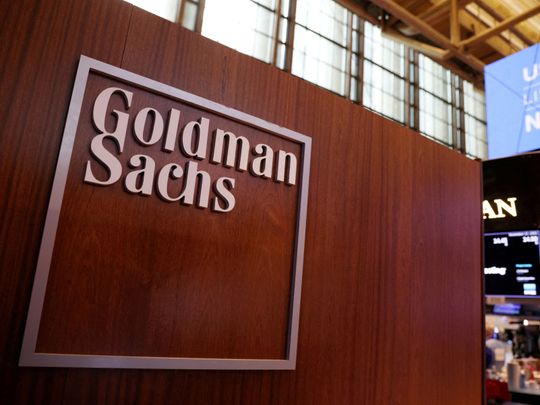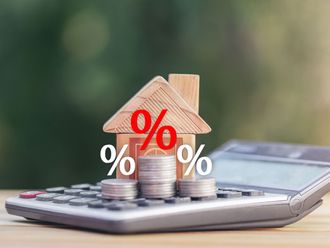
California: Apple introduced a long-promised high-yield savings account with Goldman Sachs Group, looking to attract US financial clients with an attractive rate and the ease of its Wallet app.
The new offering will let Apple Card users earn a 4.15 per cent annual yield, more than 10 times the national average, the tech company said in a statement on its website Monday. The account has no fees, minimum deposit or balance requirements and can be set up from within the Wallet app.
The move thrusts the tech company’s clout into a broader fight for depositors, potentially adding to the pressure on other financial firms that are trying to protect their funding. Small and midsize banks, in particular, have been facing withdrawals this year, as savers chase higher returns elsewhere or move their money to safe havens, such as JPMorgan Chase & Co., in the wake of Silicon Valley Bank’s collapse last month.
Read more
BlackRock CEO Larry Fink predicted on Friday that cash will keep trickling out of traditional bank accounts amid those pressures.
“More and more deposits are leaving and they’re going into ETFs and into any form of cash and money market funds,” he said, noting that his firm has been benefiting.
Apple announced the product in October, part of a series of new financial offerings. The idea is to generate more revenue from services, which have already surged in recent years, and provide yet another way to lock consumers into the Apple platform.
Still, pushing into the industry hasn’t always gone smoothly. A “buy now, pay later” service suffered a long delay before beginning to roll out last month. And the savings account itself took about six months to appear after the announcement. The Apple Card program also is only available in the US.
The maximum balance for the account is $250,000.
“Our goal is to build tools that help users lead healthier financial lives,” Jennifer Bailey, vice president of Apple Pay and Apple Wallet, said in the statement.
The company generated almost 20 per cent of its revenue from services last year, up from about 8 per cent a decade earlier, and more offerings are coming. An iPhone subscription program is in the works, Bloomberg News has reported, along with an expanded version of the Pay Later program called Apple Pay Monthly Installments that can handle larger transactions over longer periods “- while charging interest.







